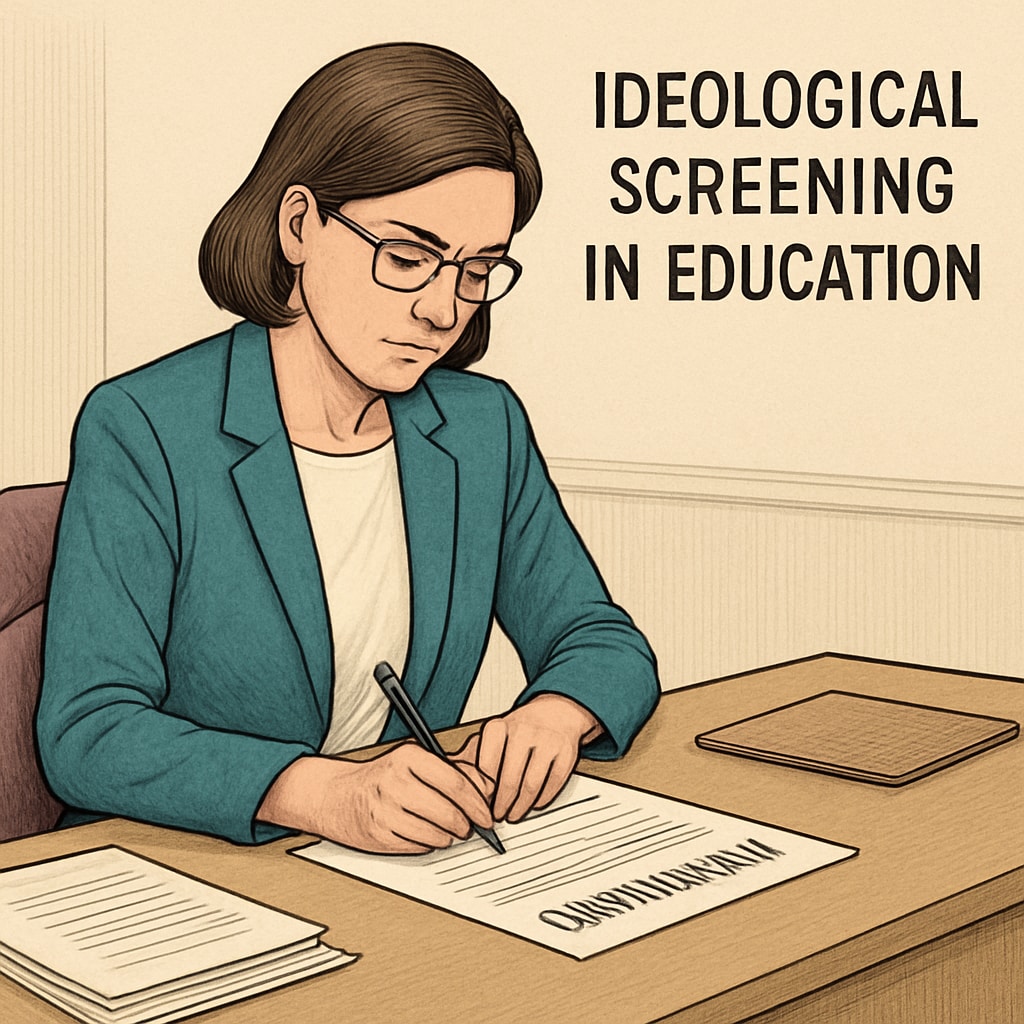Oklahoma’s recent implementation of a political bias test for out-of-state teacher applicants has ignited a nationwide debate on education neutrality and ideological interference. This policy, introduced as part of the state’s teacher hiring process, raises pressing questions about the balance between professional qualifications and political screenings. While proponents argue it ensures alignment with local values, critics warn of the risks to diversity, freedom of thought, and education’s role in fostering an open society.
The Motivation Behind Oklahoma’s Political Bias Test
Oklahoma’s political bias test appears to stem from broader concerns about the perceived politicization of education. Supporters of the policy contend that it safeguards students from potential ideological indoctrination by ensuring that educators align with certain “community values.” They argue that schools play a pivotal role in shaping young minds, and political neutrality is essential to maintaining trust in the system.
However, opponents of the policy view it as a dangerous precedent. They argue that the test risks alienating qualified educators who may not share the state’s dominant political ideologies. This could exacerbate existing teacher shortages, particularly in subjects like science, technology, engineering, and mathematics (STEM).

Potential Impacts on Teacher Diversity and Education Quality
The implementation of a political bias test may have far-reaching consequences for Oklahoma’s education system. One potential issue is its impact on teacher diversity. By screening for political beliefs, the policy could deter candidates from diverse backgrounds, limiting the perspectives available to students.
In addition, the focus on ideological alignment may overshadow other critical aspects of teacher qualifications, such as pedagogical skills, subject expertise, and classroom management. This could lead to a decline in the overall quality of education, as hiring decisions may prioritize political conformity over professional competence.
Furthermore, the policy raises broader ethical and legal questions about discrimination and freedom of speech. Critics argue that such tests could violate constitutional protections, particularly if they are used to exclude individuals based on their political affiliations or beliefs.

Finding Balance: Education Neutrality Versus Ideological Screening
Balancing education neutrality with the need to avoid ideological screening is a complex challenge. While it is essential to ensure that teachers do not impose personal beliefs on students, policies like Oklahoma’s political bias test risk crossing the line into undue interference.
To address these concerns, policymakers could consider alternative approaches, such as:
- Providing professional development programs focused on unbiased teaching methods.
- Implementing clear guidelines for curriculum neutrality without targeting individual teachers’ beliefs.
- Encouraging open dialogue between educators, parents, and administrators to address concerns about bias.
By promoting transparency and inclusivity, states can create policies that uphold education standards without compromising diversity or freedom of thought.
As the debate continues, Oklahoma’s decision will likely serve as a test case for other states considering similar measures. The outcomes of this policy could shape the broader conversation about the role of politics in education for years to come.
Readability guidance: This article uses clear structure, short paragraphs, and focused subheadings to ensure readability. Lists are included for easy comprehension, and transitions help maintain flow. Passive voice and long sentences are minimized to enhance clarity.


